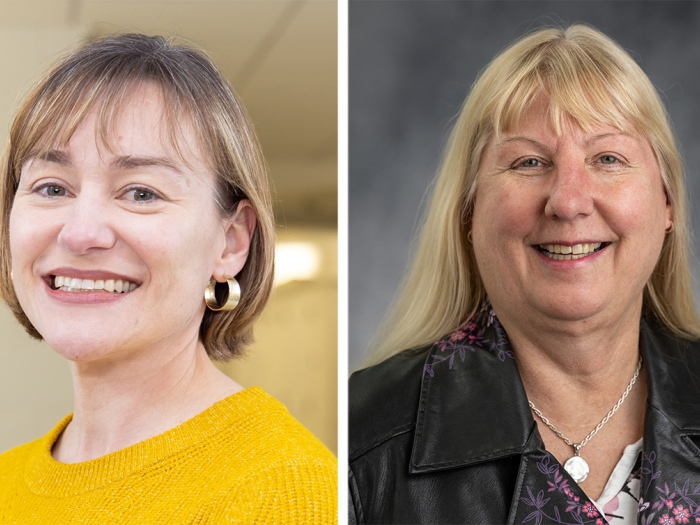
Available to mentor

My lab seeks to understand how human gut bacteria recognize and import the carbohydrates that transit the intestinal environment. The glycan landscape of the gut is constantly changing through the variety of foods that we eat. Mucus shed from the epithelial lining contains complex sugars that are also food for these bacteria. The types and abundance of these different carbohydrates shapes the composition of the gut community. In other words, our diet, in part, determines which bacteria we carry in our intestine. This is important because these bacteria produce metabolites, including short chain fatty acids and processed host bile acids, that influence our health and the outcome of various diseases such as diabetes, obesity, colorectal cancer, and inflammatory bowel disease.
Our work is “bacteriocentric” in that we study the unique physiological features of gut bacteria that allows them to harvest carbohydrate nutrition and therefore thrive in the host. Much of our work is centered on the structure and function of bacterial cell surface proteins that directly recognize, process, and import carbohydrates. A primary technique we use to understand this process is x-ray crystallography, which allows us to visualize the molecular features of this interaction. We also use biophysical techniques such as isothermal titration calorimetry to measure the affinity and energetics of protein-carbohydrate interactions. We can then make predictions about how individual proteins drive glycan uptake and test hypotheses in vivo by deleting or mutating the genes encoding these proteins to determine how bacterial growth is affected. By collaborating with our colleagues on campus, including Julie Biteen (Chemistry, single molecule imaging), Brandon Ruotolo (Chemistry, native mass spectrometry) and Melanie Ohi (LSI, cryoEM), we can comprehensively examine how bacteria cell surface proteins move, interact with substrate, and assemble into functional complexes.
-
Postdoctoral TrainingDonald Danforth Plant Science Center, St Louis, 2009
-
PhDUniversity of Wisconsin, Madison, 2004
-
BSPennsylvania State University, State College, 1998
-
Center MemberRogel Cancer Center
Bacteroides, Carbohydrate-Active Enzymes, Glycoside Hydrolases, Resistant Starch, Lipoproteins, Structural Biology, Protein Biophysics
-
Brown HA, Morris AL, Pudlo NA, Hopkins AE, Martens EC, Golob JL, Koropatkin NM. mBio, 2024 Dec 11; 15 (12): e0150624Journal ArticleAcarbose impairs gut Bacteroides growth by targeting intracellular glucosidases.
DOI:10.1128/mbio.01506-24 PMID: 39565129 -
Pickles IB, Chen Y, Moroz O, Brown HA, de Boer C, Armstrong Z, McGregor NGS, Artola M, Codée JDC, Koropatkin NM, Overkleeft HS, Davies GJ. Angew Chem Int Ed Engl, 2024 Nov 27; e202415219Journal ArticlePrecision Activity-Based α-Amylase Probes for Dissection and Annotation of Linear and Branched-Chain Starch-Degrading Enzymes.
DOI:10.1002/anie.202415219 PMID: 39601378 -
Koropatkin N. 2024 Nov 12;PresentationBacteroides utilize a novel N-acyl transferase to produce lipoproteins
-
Armbruster KM, Jiang J, Sartorio MG, Scott NE, Peterson JM, Sexton JZ, Feldman MF, Koropatkin NM. Proc Natl Acad Sci U S A, 2024 Nov 12; 121 (46): e2410909121Journal ArticleIdentification and characterization of the lipoprotein N-acyltransferase in Bacteroides.
DOI:10.1073/pnas.2410909121 PMID: 39495918 -
Koropatkin N. 2024 Nov 11;PresentationBacteroides utilize a novel N-acyl transferase to produce lipoproteins
-
Koropatkin N. 2024 Oct 24;PresentationMicrobial Carb Loading: How Gut Bacteroides Eat Starch
-
Koropatkin N. 2024 Sep 10;PresentationAcarbose targets intracellular glycoside hydrolases in gut Bacteroides
-
Armbruster KM, Jiang J, Sartorio MG, Scott NE, Peterson JM, Sexton JZ, Feldman MF, Koropatkin NM. 2024 Jun 1;PreprintIdentification and Characterization of the Lipoprotein N-acyltransferase in Bacteroides.
DOI:10.1101/2024.05.31.596883 PMID: 38853980


